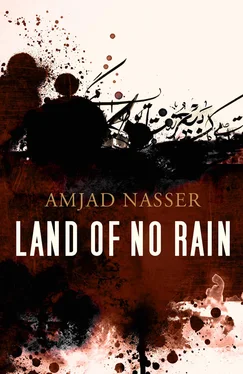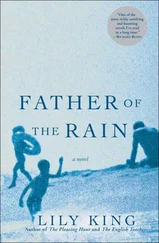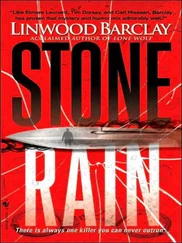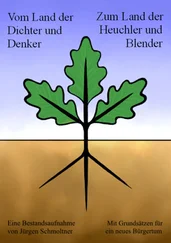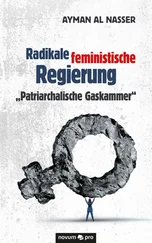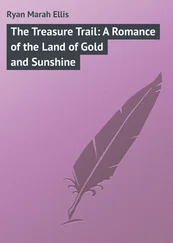He didn’t know what the denunciation was that cost Ibn Muqla his hand. His father didn’t mention it in the notebook in which he summarised part of Ibn Muqla’s life and the foundations of calligraphy that he had set out. There were sayings. Lines of poetry. Including this line that his father attributed to the Master of Calligraphy when his hand was cut off: ‘If part of you dies, weep for it, because the part that has died is close to the part that is left.’ The strange thing is that, after his hand was cut off, his tongue was also cut out and he was jailed and remained in prison until he ‘surrendered his soul to his Creator’ — that was precisely his father’s expression. He wondered, ‘Why did they cut out his tongue? His hand was his weapon. Cutting it off made sense. But why did they cut out his tongue? Was it because he was outspoken? Or to deprive him of any form of human expression?’ He didn’t know. Many people apparently wrote elegies for him too. Including al-Sahib ibn Ibad, who said, ‘The calligraphy of the vizier Ibn Muqla was a delight to the heart and to the eye.’ But his father, writing what amounted to a short biography of this extraordinary calligrapher, concentrated on his calligraphic works and largely ignored the man’s ruthless pursuit of luxury, prestige and power. The man seemed quite the antithesis of his father. More like our intellectuals today, in their relationships with authority and rulers. It occurred to him that events recur in a vicious cycle. The subject preoccupied him. It reinvigorated him. He didn’t need to go to the public library to find out more about Ibn Muqla. In his father’s library there were several reference books, both classical and modern, on the pioneers of Arabic calligraphy and aspects of their lives. There he saw the calligrapher’s other face. He found out why he was imprisoned, and why his hand was cut off and then his tongue. It was a troubled period with many intrigues and conspiracies, and the Abbasid empire was starting to fall apart. It seems that the historian Ibn Kathir hated Ibn Muqla. Hated his character, probably not his calligraphy. He said Ibn Muqla was hapless and impecunious in early life. But he managed to accumulate wealth, which he then began to spend lavishly. He began his political life collecting the land tax from parts of Persia, and his business affairs turned from bad to good, and from good to better, and his good reputation reached the ears of the caliph al-Muqtadir. When the office of vizier fell vacant after Ali ibn Issa, three candidates were proposed to the caliph: al-Fadl ibn Jaafar ibn al-Furat, Abu Ali ibn Muqla and Muhammad ibn Khalaf al-Nirmani. The three names did not appeal to the caliph’s entourage, because for each one of them there was some story or some good reason why he was unacceptable. They told al-Muqtadir, ‘As for Ibn al-Furat, we killed his uncle, the vizier Abul Hassan, and his nephew, and we confiscated his sister’s property, so we don’t feel safe with him. As for Ibn Muqla, he’s a complete novice with no experience in the vizierate and no prestige among the people. As for Muhammad ibn Khalaf al-Nirmani, he’s an irresponsible ignoramus who’s no good at secretarial work or scholarship.’ But the fact that al-Muqtadir’s entourage rejected Ibn Muqla’s name did not discourage the power-hungry master of calligraphy. He was shrewd. He was determined to catch the caliph’s attention by any means possible. He wanted to become vizier whatever happened. But how? He went to the town of Anbar with fifty homing pigeons to carry reports of the constant intrigues and conspiracies that came close to threatening the caliphate itself. News of the far-flung empire came to him on the wings of the fifty birds that had been dispersed in all four directions, and he would pass the news on to al-Muqtadir’s office. Finally, some of the caliph’s aides said to the caliph, ‘Ibn Muqla has done this on his own initiative, so how would he perform if you actually gave him a job?’ So the caliph gave him the vizierate on the basis of what he had heard about him. Reading all this in the basement, he was struck by Ibn Muqla’s infatuation with birds. Why birds in particular? He didn’t know, but he read an amusing story about how the calligrapher, when he was vizier, became obsessed with breeding animals in general, and birds in particular. One of the reference books said he had a large and flourishing garden that he filled with rare trees, birds and other animals. The net he used to cover the garden was made of silk. Under the net there were types of birds beyond description. Ibn al-Jawfi wrote about this garden and its unique contents, and noted that in it he bred birds which are usually bred only on farms, such as various types of turtle dove and wild pigeon, as well as nightingales, parrots, bulbuls, peacocks and partridge. There were also gazelles, wild cows, ostriches, camels and wild donkeys, which made it a zoo that was comprehensive for its time. One day one of his workers saw a seabird mating with a land bird. He monitored them and when the female laid eggs and the eggs started to hatch, he rushed to Ibn Muqla and told him what had happened. Ibn Muqla gave the worker a hundred dinars as a bonus for bringing him the news. After he had read extracts from the biography of the man who founded the discipline of Arabic calligraphy, the question that overwhelmed him was this: How did Ibn Muqla find time to invent twenty-four scripts? How did he manage to bring about the great leap from one stage to another in the progress of calligraphy when he spent most of his time manoeuvring, arguing, forming alliances and hatching conspiracies in order to obtain the office of vizier?
He knew of his father’s interest in al-Suhrawardi, but he didn’t know he had spent so much time collecting and editing his works. Al-Suhrawardi’s works have never been published in a single collection. In Arabic he is known mainly for his famous poem with ha’ as the rhyme letter. He knew most of the lines by heart, but not for the same reason as his father. He discovered that his father had made good progress collecting al-Suhrawardi’s poems and poetic fragments from three manuscripts, one of which was preserved in the al-Zahiriya Library and numbered 5576. The second was in the Berlin Museum numbered 7669, and the third includes an extension of the ancient poem that begins Suad appeared and is in Tubingen with the number R137. He also found a letter from the director of the Berlin Museum, signed Dr George. The first manuscript is written in a Persian-style script, the second and third in naskh . There is also an unfinished copy in thuluth that his father had started to write out, based on the poems available to him by the Sufi master, who is said to have been killed by Saladin or his son. His father opened the manuscript with a quotation that goes: He who seeks the truth by means of proof is like someone who finds the way to the sun by means of a lantern . There’s no attribution for this saying but it must be Suhrawardi’s. The truth. Proof. The inner and the outer truth again.
He stood for a long time in front of a calligraphic design written in the thuluth jali script and his heart pounded. It was a poem that read:
Life has no savour now that you have taken leave of it,
The night has no magic now that you are gone.
He thought the poem was about him.
Did his father write this poem in excellent thuluth jali about him?
Was his father’s life after the flight of his rebellious son without savour, and his nights, after he was gone, without magic?
His feeling didn’t change when he discovered that the line was by al-Sharif al-Radi in mourning for Ibn al-Bawwab, the master of calligraphy who came after Ibn Muqla. He told himself his father was in the habit of writing things in which he read a second meaning. It also surprised him that young Younis could read the riddles in the Kufic design that hung in the corner by the entrance to the cellar. He had learned from young Younis things he hadn’t given himself a chance to learn when he was twenty years old. The fact that the child had outdone him didn’t necessarily mean he was more intelligent. He may have learned the secret of the Kufic labyrinth from his father Shihab, who was very close to his father, or because the boy himself was attached to his grandfather, who had passed away when he was four or five years old. ‘It’s either familiarity or repetition,’ he told himself.
Читать дальше
